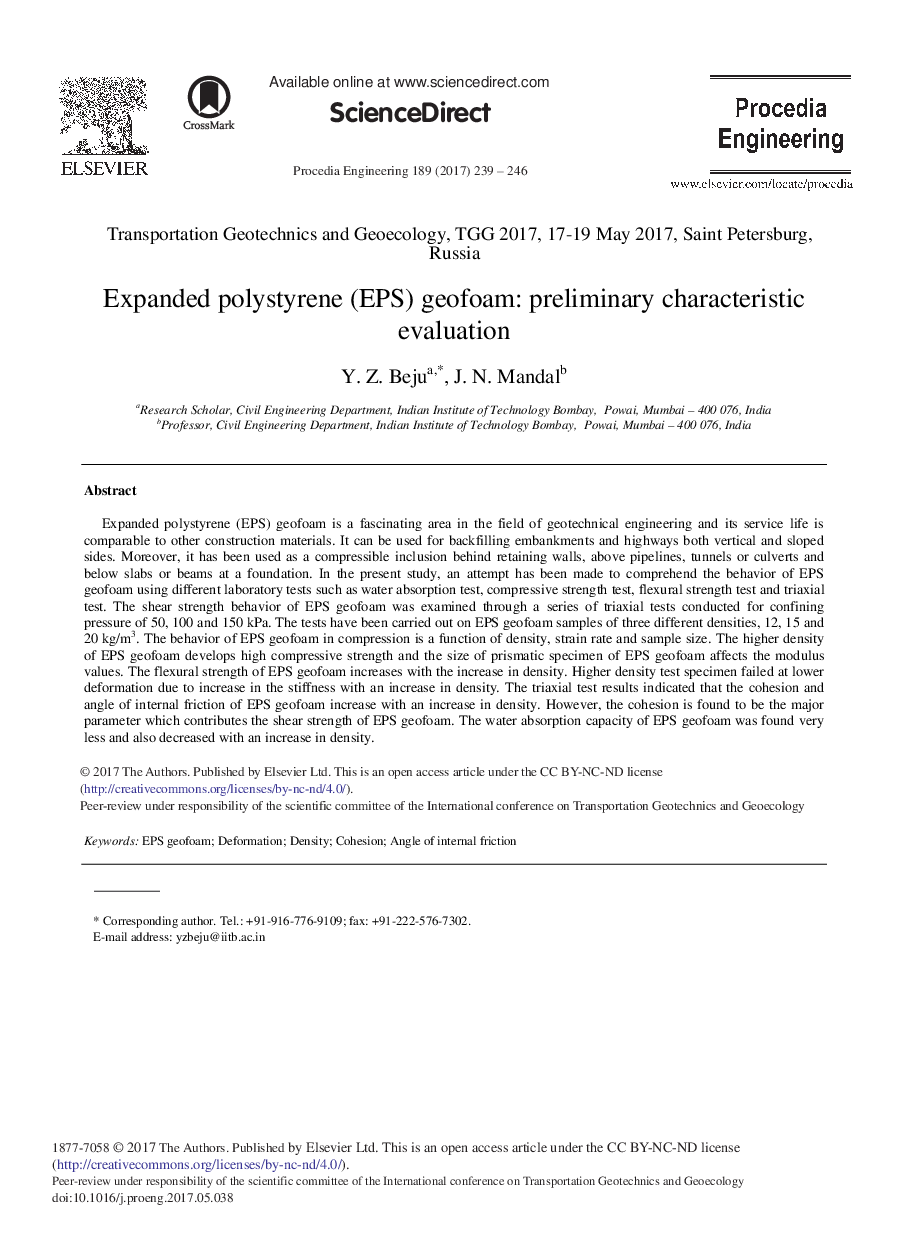| Article ID | Journal | Published Year | Pages | File Type |
|---|---|---|---|---|
| 5027713 | Procedia Engineering | 2017 | 8 Pages |
Expanded polystyrene (EPS) geofoam is a fascinating area in the field of geotechnical engineering and its service life is comparable to other construction materials. It can be used for backfilling embankments and highways both vertical and sloped sides. Moreover, it has been used as a compressible inclusion behind retaining walls, above pipelines, tunnels or culverts and below slabs or beams at a foundation. In the present study, an attempt has been made to comprehend the behavior of EPS geofoam using different laboratory tests such as water absorption test, compressive strength test, flexural strength test and triaxial test. The shear strength behavior of EPS geofoam was examined through a series of triaxial tests conducted for confining pressure of 50, 100 and 150Â kPa. The tests have been carried out on EPS geofoam samples of three different densities, 12, 15 and 20Â kg/m3. The behavior of EPS geofoam in compression is a function of density, strain rate and sample size. The higher density of EPS geofoam develops high compressive strength and the size of prismatic specimen of EPS geofoam affects the modulus values. The flexural strength of EPS geofoam increases with the increase in density. Higher density test specimen failed at lower deformation due to increase in the stiffness with an increase in density. The triaxial test results indicated that the cohesion and angle of internal friction of EPS geofoam increase with an increase in density. However, the cohesion is found to be the major parameter which contributes the shear strength of EPS geofoam. The water absorption capacity of EPS geofoam was found very less and also decreased with an increase in density.
